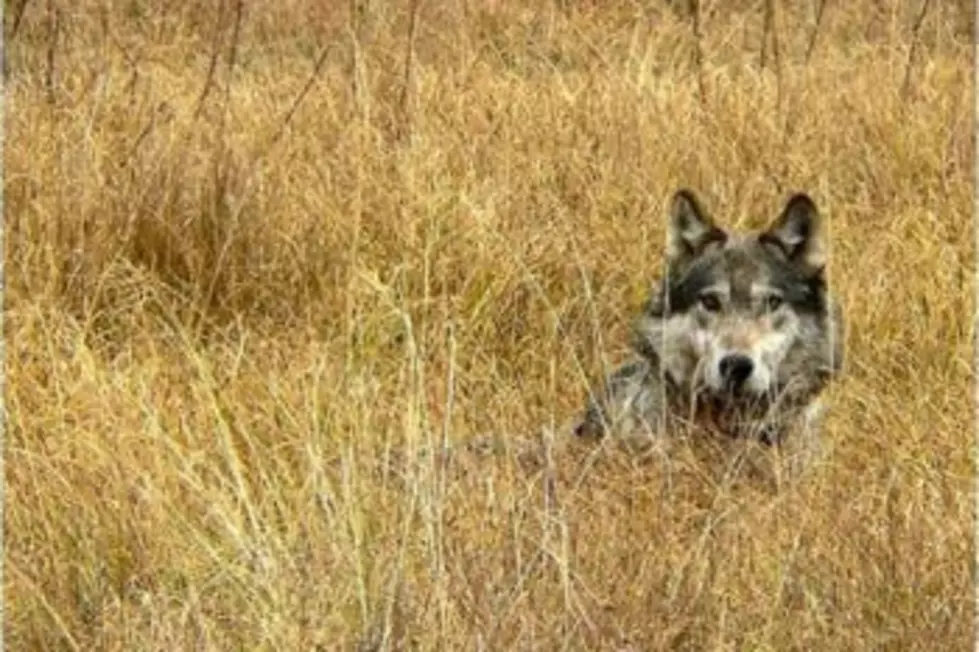
Conservation groups threaten lawsuit if wolf trapping, snaring laws remain unchanged
(Daily Montanan) A handful of groups is threatening legal action against the state if it does not revise recently passed legislation that makes it easier to hunt gray wolves in the state, saying the new laws would violate the Endangered Species Act by leading to the accidental taking of federally protected species.
The letter of intent to sue — addressed to Gov. Greg Gianforte, Montana Fish and Wildlife Protection Director Hank Worsech, as well as FWP commission members — by the groups echo a familiar argument made during the legislative session that allowing neck snares to be used for trapping wolves and extending the trapping season will lead to more accidental deaths of non-target animals.
“These bills impose a new trapping paradigm in western Montana’s lynx and grizzly bear habitat and are likely to cause incidental trapping and injury or death of these threatened species,” the letter read.
Rep. Paul Fielder, R-Thompson, sponsored House Bills 224 and 225 that allow for neck snares and extend the trapping season by adding two weeks on each end. At the International Grizzly Bear Committee’s summer meeting, Ken McDonald, chief of wildlife staff for Fish Wildlife and Parks, said the department plans to ask the FWP commission to end the trapping season in mid-December to protect bears coming out of hibernation within grizzly bear habitats.
The groups also took issue with Senate Bill 314, which allows more harvesting per individual license, baiting within 30-feet of a trap, and the hunting of wolves on private lands outside of daylight hours with the use of artificial light or scope. The bill also directs the FWP to “establish by rule hunting and trapping seasons for wolves with the intent to reduce the wolf population in this state to a sustainable level, but not less than the number of wolves necessary to support at least 15 breeding pairs.”
The letter said the state should “at a minimum” prohibit all trapping and snaring in occupied lynx and grizzly bear habitat to avoid accidental takings.
“Unless the State takes action in the next 60 days to remedy this violation, the undersigned organizations will seek judicial enforcement of the ESA’s take prohibition,” the letter said.
Because of the overlap of habitats between grizzly bears, Canadian lynx and gray wolves, the letter said the two threatened species would increasingly fall victim to snares under the new laws. The letter was sent by Earthjustice and on behalf of the Center for Biological Diversity, Friends of the Clearwater, Humane Society of the United States, International Wildlife Coexistence Network, Sierra Club, Western Watersheds Project, Wilderness Watch, and Wolves of the Rockies.
“The Montana legislature and governor’s policies on wolf management are not about hunting, they are state-sponsored eradication the likes of which we haven’t seen since the 19th century,” said Earth Justice attorney Ben Scrimshaw.
Grizzly bears were added to the endangered species act in 1975 after populations fell to a sliver of what they once were. Since receiving federal protection, bear populations have continued to rise from around 700 in 1975 to nearly 2,000 in 2020. However, a recent review of the animal’s status under the ESA by the U.S. Fish and Wildlife Service maintained its threatened status. Due to the lack of regulatory mechanisms to protect Canadian Lynx, the animal was added to the ESA in 2000. Like the grizzly, the lynx has seen positive impacts on population rates after receiving federal protections.
On June 16, again citing laws passed in Montana, many of the same organizations joined 50 conservation is petitioning the FWS to restore the ESA protections for gray wolves.
“The unsustainable management of gray wolves by the states clearly demonstrates that the states cannot be trusted to protect this iconic species,” said Tara Thornton of the Endangered Species Coalition in a press release announcing the petition. “The U.S. Fish and Wildlife Service must step in to ensure gray wolves aren’t once again exterminated in the Northern Rockies.”
On Thursday, the FWP Commissioners will meet to discuss the recently implemented laws, including the rules and regulations for wolf hunting.
